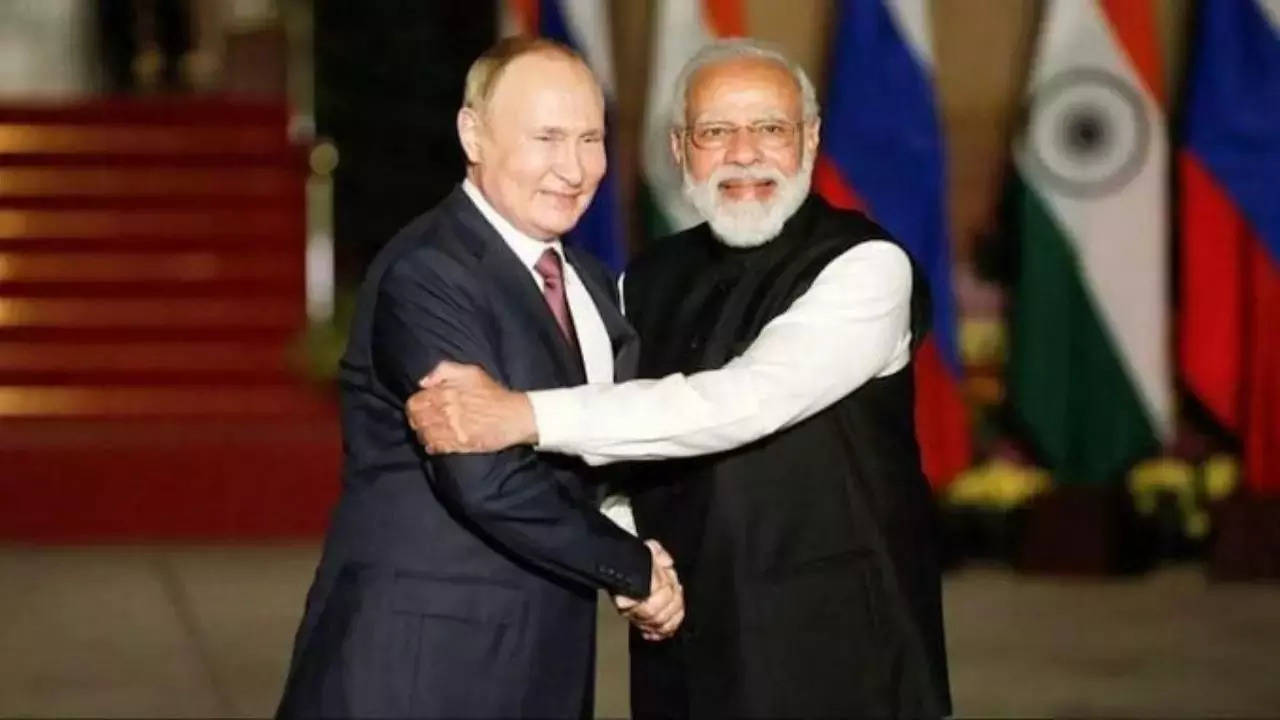NEW DELHI: Amid reports of Prime Minister Narendra Modi’s visit to Moscow in July, the US deputy secretary of state Kurt Campbell on Wednesday said that Washington has “some concerns” over India’s engagement with Russia in military and technology domains, while also expressing confidence and trust in advancing the India-US partnership.
Asked if there are worries in Washington about sharing sensitive technologies with India, given New Delhi’s significant military and technology partnership with Russia, the deputy secretary of state said, “We have a full and frank dialogue between the US and India and we do discuss our mutual relationships with key countries and those include India’s relationship with Russia.”
The deputy secretary of state said the US is seeking to develop a much deeper and stronger technological relationship with India.
“We have been clear which areas are affected by the continuing relationship between India and Russia, militarily and technologically. I think we will take what steps we can to mitigate some of those engagements and we have expressed some concerns. But at the same time, we have confidence and trust in India and we’re seeking to advance our partnership in technology in the context of those different ties,” he said.
“I do want to underscore that the US and India are both great powers. We have many areas of alignment, but it is not surprising that there would be areas where we had perhaps different perspectives, views, historical ties,” he added.
Campbell said that it was important for India and US to share views on disagreements and seek solutions for the differences.
“In the context of our strategic partnership, I think what’s been important is our ability to share views on areas where we occasionally have disagreements, do those respectfully and seek where possible to narrow those areas where there are differences,” he said.
Following extensive discussions between NSA Ajit Doval and Sullivan, India and the US recently introduced a series of ambitious initiatives to enhance collaboration in semiconductor technology, artificial intelligence, critical minerals, and defense space.
A fact-sheet issued after the talks highlighted that both nations agreed to prevent the unauthorized transfer of sensitive and dual-use technologies to “countries of concern.”
Additionally, both parties assessed India’s plans to acquire 31 MQ-9B Predator drones, the proposed joint production of Stryker infantry combat vehicles, and ongoing negotiations between GE Aerospace and Hindustan Aeronautics Ltd for the co-production of GE F414 engines for India’s future fighter jets.
( with input from agencies)
Asked if there are worries in Washington about sharing sensitive technologies with India, given New Delhi’s significant military and technology partnership with Russia, the deputy secretary of state said, “We have a full and frank dialogue between the US and India and we do discuss our mutual relationships with key countries and those include India’s relationship with Russia.”
The deputy secretary of state said the US is seeking to develop a much deeper and stronger technological relationship with India.
“We have been clear which areas are affected by the continuing relationship between India and Russia, militarily and technologically. I think we will take what steps we can to mitigate some of those engagements and we have expressed some concerns. But at the same time, we have confidence and trust in India and we’re seeking to advance our partnership in technology in the context of those different ties,” he said.
“I do want to underscore that the US and India are both great powers. We have many areas of alignment, but it is not surprising that there would be areas where we had perhaps different perspectives, views, historical ties,” he added.
Campbell said that it was important for India and US to share views on disagreements and seek solutions for the differences.
“In the context of our strategic partnership, I think what’s been important is our ability to share views on areas where we occasionally have disagreements, do those respectfully and seek where possible to narrow those areas where there are differences,” he said.
Following extensive discussions between NSA Ajit Doval and Sullivan, India and the US recently introduced a series of ambitious initiatives to enhance collaboration in semiconductor technology, artificial intelligence, critical minerals, and defense space.
A fact-sheet issued after the talks highlighted that both nations agreed to prevent the unauthorized transfer of sensitive and dual-use technologies to “countries of concern.”
Additionally, both parties assessed India’s plans to acquire 31 MQ-9B Predator drones, the proposed joint production of Stryker infantry combat vehicles, and ongoing negotiations between GE Aerospace and Hindustan Aeronautics Ltd for the co-production of GE F414 engines for India’s future fighter jets.
( with input from agencies)
